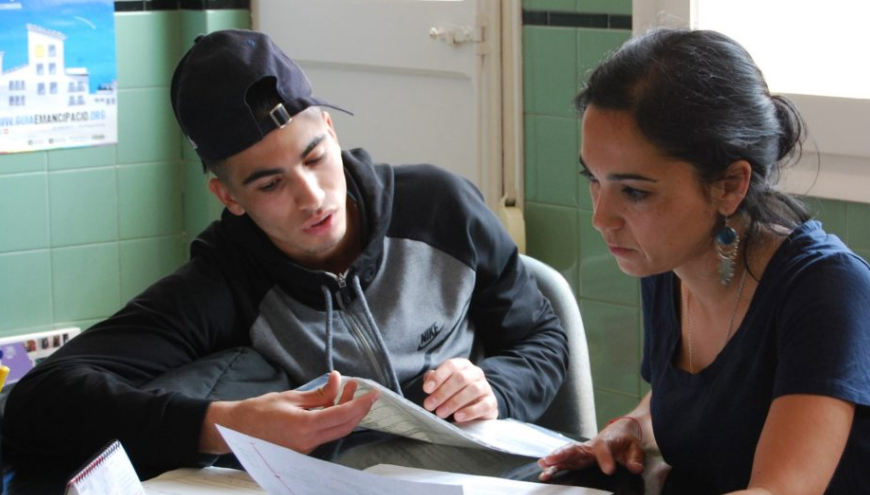Punt de Referència (Reference Point) aims to foster the social integration and job insertion of young people who have been in care and are at risk of social exclusion. Participants are offered training and mentoring programmes as well as individual support in areas such as personal development, professional skills development and access to housing.
Església Plural Award (2015). Francesc Candel Award (2015).
Impact evidence
- In 2015, 224 young people participated in the programmes, supported by 130 volunteers.
- 72% of the 77 participants in the Trajecte programme improved their education status, completing a course or reintegrating in the education system; and 18% obtained an internship.
- An external, quasi-experimental study that isolated the results of the mentoring programme through a control group showed that, while participants maintain or slightly improve their educational and labour expectations, the situation of those who do not participate gets worse.
- Mentees also report improvements in their social relations and social capital (83%), access to resources (72%) and opportunities (67%), autonomy (67%) and education (61%).
Punt de Referència offers young people who have been in care and other marginalised youth a mentorship period to support their emancipation process, combined with other activities. The programmes are oriented by professional workers and focused on cross-cutting skills, networking, and personal development. These include three specific areas:
- Mentoring. With the help of a social worker, volunteers accompany, guide and provide individual support to young particinats, offering them emotional, social and language support as well as guiding them with job insertion and housing.
- Family support. An opportunity for the young person to live for eight months in a foster family. Throughout this time, participants develop life skills and receive knowledge from the family, creating a relationship that lasts beyond this period. The fact that basic needs (accommodation, emotional support, living expenses) are being covered for a short time enables young people to plan present and future actions, instead of worrying about immediate survival.
- Education support. Through getting involved in group sessions and social initiatives of the civil society, participants improve their cross-cutting skills.
- Assisted living. Diverse solutions are provided to young people who have been in care and are in need of accommodation.
Geographical scope



